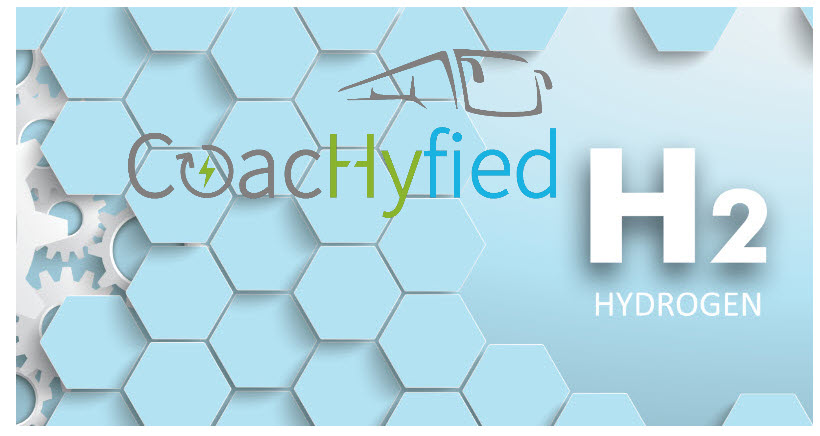
Coventry University’s Centre for Advanced Low Carbon Propulsion Systems (C-ALPS) has been chosen to join the CoacHyfied collaboration, an EU-funded project creating hydrogen-powered passenger coaches.
CoacHyfied’s €7 million initiative brings together higher education and engineering partners to create technologies that can save up to 1.4 million tonnes of CO2 from diesel coaches in the UK alone.
C-ALPS is in charge of the advanced thermal management system, which will seek for creative methods to boost fuel economy, such as harvesting waste heat from the hydrogen fuel cell to power cabin air conditioning. C-ALPS is currently investing £2 million in Coventry to build a hydrogen fuel cell development plant.
The goal of CoacHyfied, which is directed by engineering consultants and founding C-ALPS partner FEV, is to propose solutions to difficulties in the medium and long-distance public and commercial transportation sectors. Over the course of two to three years, it will create and demonstrate six fuel cell coaches in two locations of Latvia and France.
Two hundred coaches will be investigated. The first will concentrate on OEM-based new-build fuel cell coaches, while the second will concentrate on retrofitting existing coaches to give ecologically obsolete coach chassis a second life.
“We believe this project will be of benefit to coach manufacturers and future transport operators, who will need innovative solutions for creating clean mass transit in the future,” said Dr Oliver Curnick, Associate Professor in Electrochemical Power Sources at C-ALPS.
As many as 13,000 diesel-powered coaches operate in the UK, generating 1000g/km of greenhouse gases, said Dr Curnick. As well as in Europe, we aim to bring attention to the widely-acknowledged dearth of research on hydrogen-powered coaches. Additionally, the goal is to give a second life to diesel vehicles that would have otherwise been scrapped in the move to zero emissions by converting older coaches from diesel to hydrogen.
Read the most up to date Fuel Cell and Hydrogen Industry news at FuelCellsWorks




